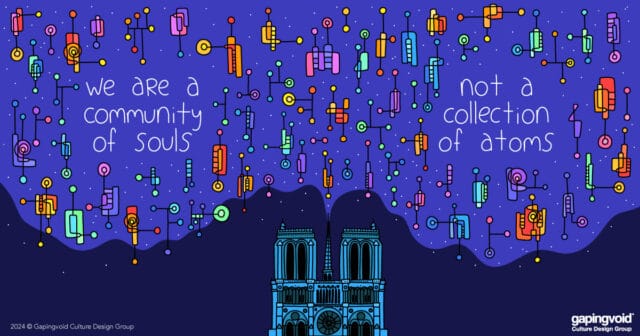
[CNN offices in London.]
At 6.30am this morning I made a brief appearance on CNN Europe. They asked me in to give my opinion on Andrew Keen’s new book, “The Cult of The Amateur- How’s Today Internet Is Killing Our Culture”.
I said I thought Andrew Keen’s book was missing the point somewhat. I said the big story about the internet is not how much it kills what Andrew refers to as “culture”, the big story about the internet is, as I’m forever quoting Clay Shirky,
“So forget about blogs and bloggers and blogging and focus on this — the cost and difficulty of publishing absolutely anything, by anyone, into a global medium, just got a whole lot lower. And the effects of that increased pool of potential producers is going to be vast.”
I asked Andrew on his blog comments a few months ago, “if blogs are as dreadful as you say they are, surely that will increase demand for quality, non-amateur product from people like yourself?”
Then if so, why is that not happening? Why aren’t people leaving the internet in droves and heading down to their local bookshop? Why aren’t newspaper sales figures shooting skywards? What aren’t Web 2.0 companies scrambling to get into traditional publishing, and not the other way around?
I never really got a proper answer from him. What the heck, though we may have disagreed on certain points, he was polite and gracious the whole time.
But a wee voice tells me that the world Andrew would prefer us living in no longer exists. Maybe it never did.



